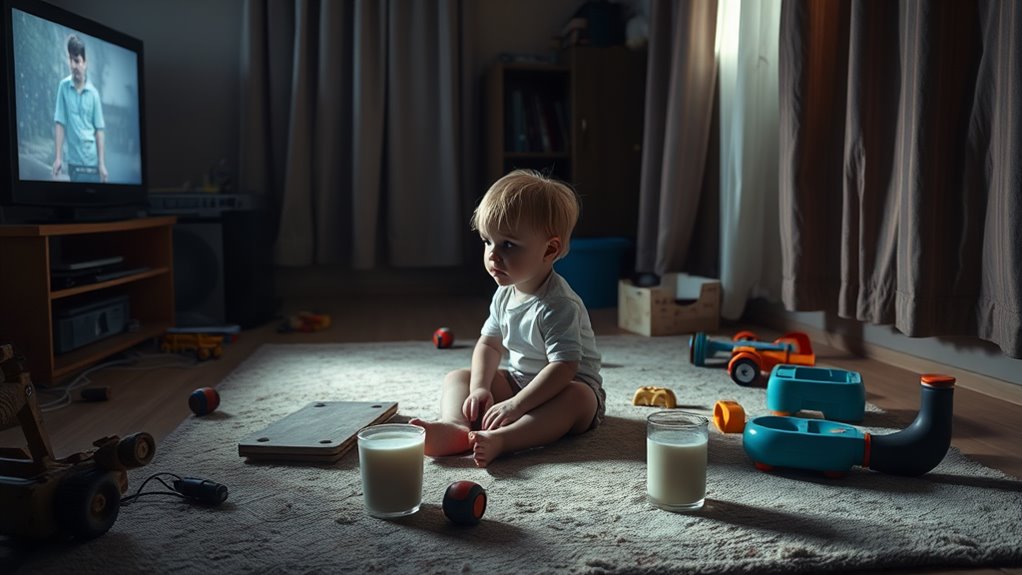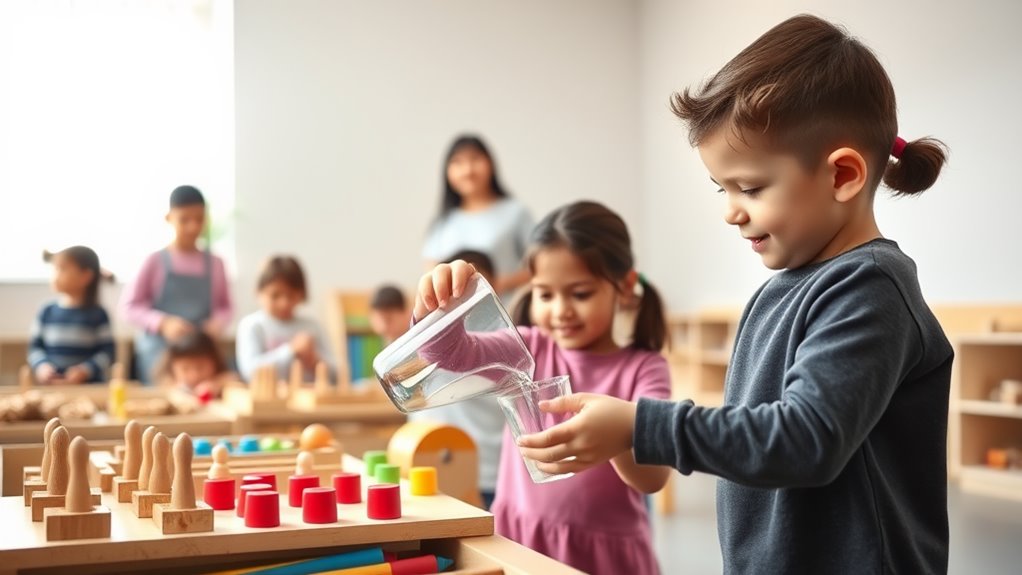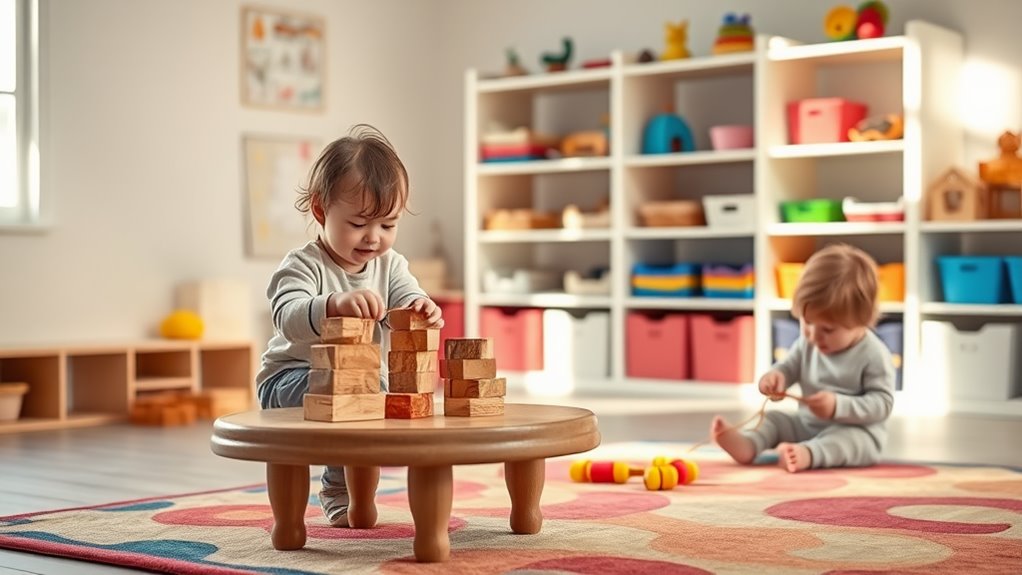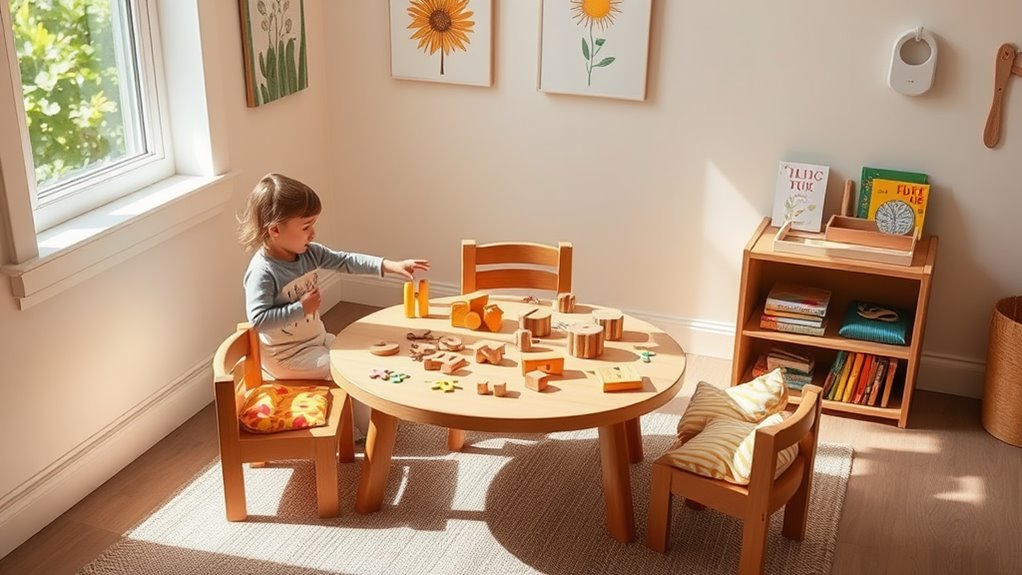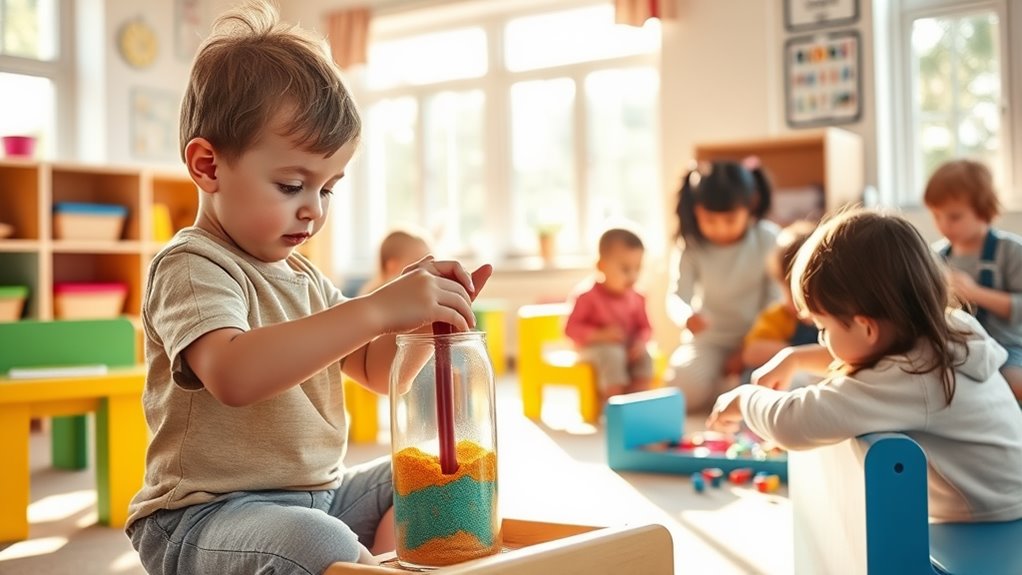The Effects of Uninvolved Parenting on Child Development
When you consider the impact of uninvolved parenting, it’s clear that the absence of engagement can lead to serious consequences for a child’s emotional and social development. You might notice that children raised in such environments often face challenges in forming relationships and managing their emotions. As you think about this, you may wonder how these early experiences shape their future interactions and self-perception. The implications go beyond immediate effects, raising questions about long-term outcomes that deserve closer examination. What might these patterns look like as they grow older?
Definition of Uninvolved Parenting
Uninvolved parenting, also known as neglectful parenting, refers to a style where parents are emotionally detached and provide minimal guidance, support, or attention to their children.
In this approach, parents often prioritize their own needs over those of their children, which can lead to a lack of nurturing and involvement in daily life. You might notice that uninvolved parents don’t attend school events, engage in conversations about feelings, or set clear rules for behavior.
Instead of being present and responsive, they might be preoccupied with their own issues or simply indifferent. This lack of engagement can leave children feeling ignored and alone, which is far from what every child craves. Kids need love, attention, and boundaries to thrive.
In uninvolved households, you might find that routines are inconsistent, and decision-making is often left solely to the child. This can be confusing for a young person trying to navigate the complexities of growing up.
Fundamentally, uninvolved parenting sets the stage for a variety of challenges, as children often don’t have the support they need to develop vital life skills and emotional intelligence. Understanding this style of parenting is significant for recognizing its potential impacts on child development.
Emotional Consequences for Children
Children raised in uninvolved parenting environments often face significant emotional consequences that can affect their overall development. Without consistent emotional support, you might struggle with feelings of neglect or abandonment. This lack of nurturing can lead to low self-esteem, as you may feel unworthy of love and attention.
You might also experience anxiety or mood swings, making it harder to cope with everyday challenges. When parents don’t provide guidance or encouragement, you may find it difficult to express your emotions or understand them, which can lead to confusion and frustration.
Moreover, you could develop a sense of emotional detachment, making it challenging to form close relationships with friends or peers. Trust can become a foreign concept, leaving you hesitant to rely on others.
In the long run, these emotional struggles can impact your mental health, leading to issues like depression or social withdrawal.
It’s important to recognize these consequences, as understanding them can help you seek support and build healthier emotional habits. With the right guidance and care, you can work towards overcoming these challenges and develop a more positive emotional outlook.
Social Skills Development Issues
Social skills often take a hit in uninvolved parenting environments, leaving you struggling to navigate social interactions. When your parents are distant or disengaged, you mightn’t receive the guidance needed to understand social cues or develop healthy relationships. You may find it hard to initiate conversations, read body language, or even share your feelings with others.
Without consistent support, you might miss out on important social learning experiences. For instance, playdates or group activities can help build teamwork and empathy, but if your parents aren’t there to encourage these interactions, you could feel unsure about how to connect with peers. This lack of practice can lead to feelings of loneliness or anxiety in social situations.
Additionally, uninvolved parenting might prevent you from learning how to resolve conflicts effectively. You might struggle to express your needs or opinions, which can create misunderstandings with friends.
As you grow older, these issues can affect your ability to form strong friendships or collaborate in school projects. By recognizing these challenges, you can take steps to improve your social skills, seeking support from friends, teachers, or mentors who can help guide you along the way.
Academic Performance Challenges
When parents aren’t involved in your education, it can greatly hinder your academic performance. You might find it tough to stay motivated or engaged in your studies. When you don’t have someone cheering you on or helping with homework, it’s easy to feel lost or overwhelmed. This lack of support can lead to lower grades and even a disinterest in learning.
Additionally, you might struggle with organization and time management. Without guidance, you may not know how to prioritize assignments or study effectively. This can create a cycle of stress, making it harder to keep up with schoolwork.
Furthermore, uninvolved parenting can affect your confidence. If you don’t feel supported, you may hesitate to ask questions or seek help from teachers, which can make things even more challenging.
In the long run, these academic performance challenges can impact your overall educational journey. By missing out on learning opportunities, you might find it difficult to pursue your interests or achieve your goals.
Long-term Mental Health Effects
Uninvolved parenting can have lasting effects on your mental health, often leading to feelings of anxiety and low self-esteem. When parents are emotionally distant or neglectful, you may struggle to feel secure and valued. This lack of support can create a void in your emotional development.
Over time, you might find it hard to trust others, leading to loneliness and social withdrawal. You might also experience heightened stress levels, as the absence of guidance makes it difficult to cope with life’s challenges. This can result in persistently worrying about your abilities and relationships.
Furthermore, the lack of nurturing can hinder your ability to express emotions effectively, making it tough to connect with friends and family. As you grow older, these mental health issues can persist, potentially leading to more severe conditions like depression or anxiety disorders.
It’s crucial to understand that you’re not alone in feeling this way. Many people who experienced uninvolved parenting face similar struggles. Recognizing these patterns can be the first step toward seeking help, fostering healthier relationships, and building a more positive self-image.
Impact on Self-Esteem
Many individuals who grew up with uninvolved parenting often struggle with low self-esteem. When parents don’t engage in their children’s lives, kids may feel ignored, leading to feelings of worthlessness. You might notice that without parental support, it becomes hard to believe in yourself or your abilities. This lack of encouragement can make you doubt your skills, whether in school, sports, or friendships.
Additionally, since uninvolved parents typically don’t provide feedback or recognition, you might find yourself feeling lost when it comes to understanding your strengths and weaknesses. It’s important to have someone in your corner, cheering you on and helping you navigate challenges. Without that, you might feel like you’re constantly competing for attention or approval, which can further chip away at your self-worth.
Feeling disconnected from your parents can also lead you to seek validation from peers, which, while natural, can sometimes lead to unhealthy relationships. This search for approval can create a cycle of low self-esteem, as you mightn’t receive the positive reinforcement that fosters self-confidence.
Understanding these impacts can help you work on building a healthier self-image, even if your early experiences weren’t ideal.
Behavioral Problems and Risks
Children raised in an uninvolved parenting environment often exhibit a range of behavioral problems and face various risks. Without the guidance and support they need, these kids may struggle with self-regulation and emotional control. You might notice them acting out, having tantrums, or even showing aggression towards peers.
This lack of structure can lead to difficulties in school, where they may exhibit poor academic performance or lack motivation.
Additionally, children from uninvolved homes are at a higher risk of engaging in risky behaviors, such as substance abuse or delinquency. They might seek attention or validation in unhealthy ways, leading to long-term consequences for their wellbeing.
The absence of parental involvement can also make it harder for them to form healthy relationships with others, leaving them feeling isolated or misunderstood.
As a parent or caregiver, it’s crucial to recognize these potential issues. By fostering a supportive and engaged environment, you can help children develop the skills they need to navigate life’s challenges.
Encouraging open communication and setting consistent boundaries can make a world of difference in their development and overall happiness.
Family Dynamics and Relationships
The impact of uninvolved parenting extends beyond individual behavior, profoundly affecting family dynamics and relationships. When parents don’t engage, it creates a distance that can fracture the bonds within the family. You might notice siblings drifting apart, as they often lack the guidance and emotional support that brings them closer. Without a nurturing environment, the sense of belonging may diminish, leading to feelings of isolation.
In such families, communication often breaks down. You may find it challenging to express your thoughts or feelings, as there’s little encouragement or understanding from parents. This lack of dialogue can cause misunderstandings and conflicts, making it hard to resolve issues. Trust, too, may suffer, as children learn not to rely on their parents for support or guidance.
As you navigate these family dynamics, the absence of involvement can create an atmosphere of neglect. You might feel like your needs are overlooked, leading to resentment.
Ultimately, uninvolved parenting can create a cycle of emotional distance, where relationships become strained, and family support systems weaken. Recognizing these impacts is essential for fostering healthier connections within the family.
Coping Mechanisms for Affected Children
Struggling with feelings of neglect can be overwhelming, but developing effective coping mechanisms can help you navigate the challenges of uninvolved parenting.
One way to cope is by expressing your feelings through journaling. Writing down your thoughts can provide clarity and relief, allowing you to process emotions that might feel too heavy to carry alone.
Another helpful strategy is to create a support network. Surround yourself with friends or trusted adults who understand your situation. Sharing your experiences can lighten your emotional load and help you feel less isolated.
Engaging in physical activities, like sports or dancing, is also beneficial. Exercise releases endorphins, which can boost your mood and reduce stress. Plus, it gives you a positive outlet for your feelings.
Mindfulness techniques, such as deep breathing or meditation, can further help you manage anxiety. Taking a few moments each day to focus on your breath can promote calmness and self-awareness.
Strategies for Support and Intervention
When faced with the challenges of uninvolved parenting, seeking support and intervention can make a significant difference in a child’s well-being. First, connect with local resources like counseling services or support groups. These can provide guidance and a safe space to share experiences. You might also consider reaching out to school counselors, who can offer valuable insights and help in managing your child’s emotional needs.
Next, encourage open communication with your child. Show them they’re heard and understood. This can boost their self-esteem and strengthen your bond. You could also create routines that foster stability—set aside time each day for activities together, whether it’s reading or playing a game.
Additionally, consider involving extended family members or trusted friends who can provide additional support. They can offer different perspectives and create a more nurturing environment.
